Indigenous Governance Database
research

Fostering global data sharing: highlighting the recommendations of the Research Data Alliance COVID-19 working group
The systemic challenges of the COVID-19 pandemic require cross-disciplinary collaboration in a global and timely fashion. Such collaboration needs open research practices and the sharing of research outputs, such as data and code, thereby facilitating research and research reproducibility and…
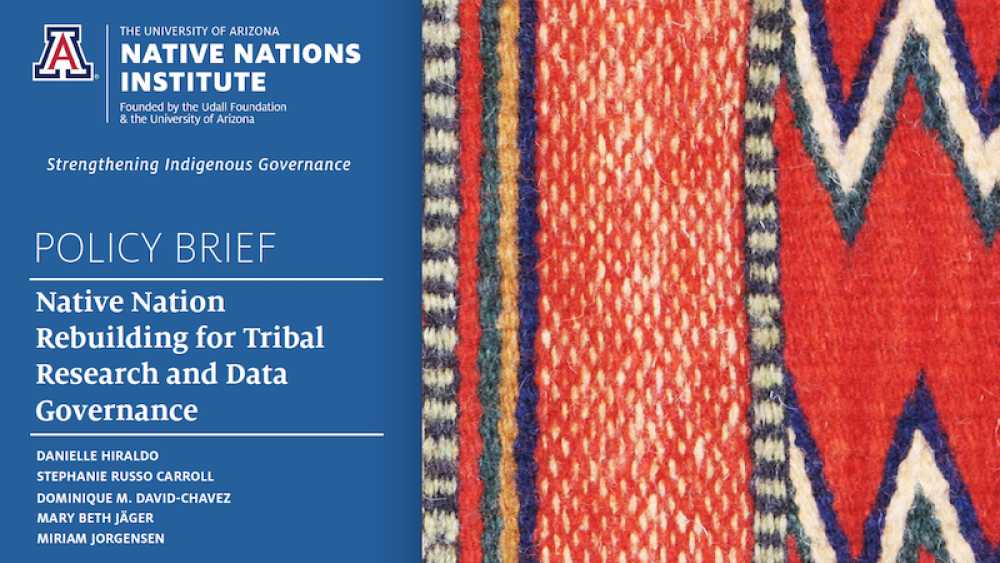
Policy Brief: Native Nation Rebuilding for Tribal Research and Data Governance
Indigenous Peoples conducted research long before their interactions with European settlers. Whether through observation or practice, research in a non-western context was woven into Indigenous ways of knowing and being. It continues to inform Indigenous Knowledges of landscapes and natural…
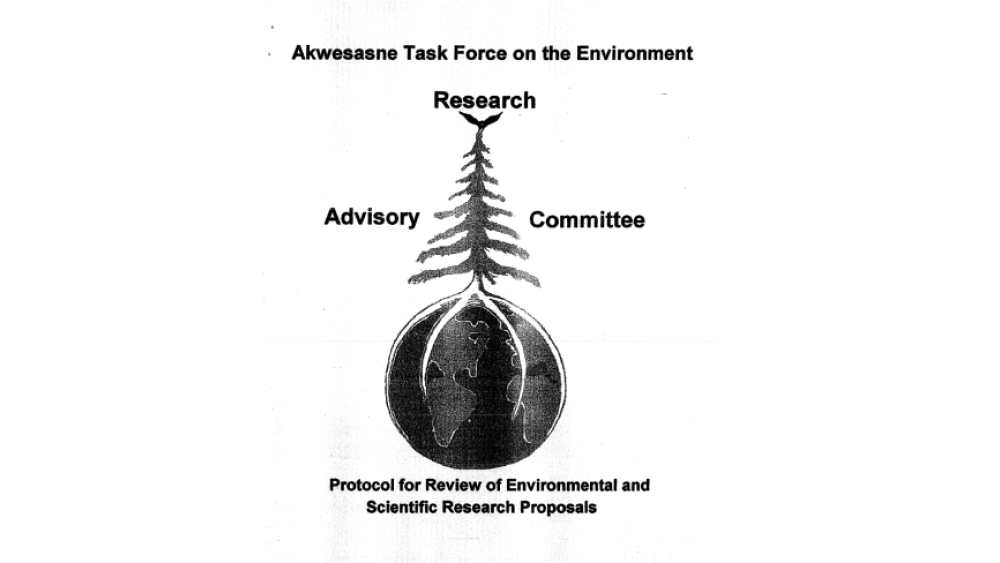
Protocol for Review of Environmental and Scientific Research Proposals
The principles of skennen, kariwiio and kasastensera serve as the foundation and guiding force for the Akwesasne Task Force on the Environment (ATFE). Since the beginning of time, our Creator has told our people to strive for peace and as individuals, communities and Nations, we must constantly…
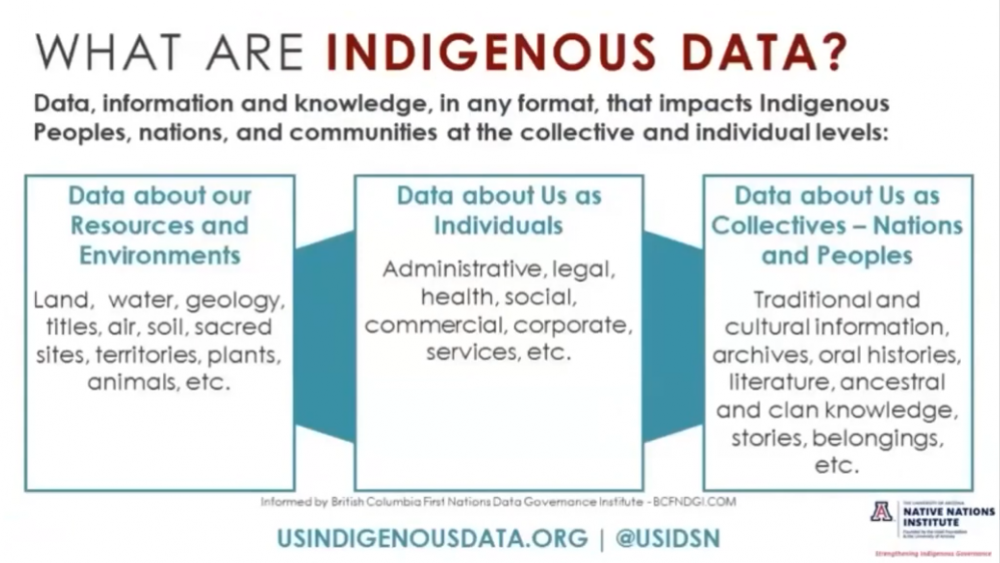
Operationalizing the CARE Principles for Indigenous Data Governance Webinar
Presented by: Stephanie R. Carroll, Assistant Professor and Associate Director of the Native Nations Institute, University of Arizona Jane Anderson, Associate Professor, Department of Anthropology and Museum Studies, New York University Extractive and unethical research practices led to the…

Mātauranga and Science
"Mātauranga Māori is not like an archive of information but rather is like a tool for thinking, organising information, considering the ethics of knowledge, the appropriateness of it all and informing us about our world and our place in it." (Mead 2003, p. 306) Māori have become a pivotal force…
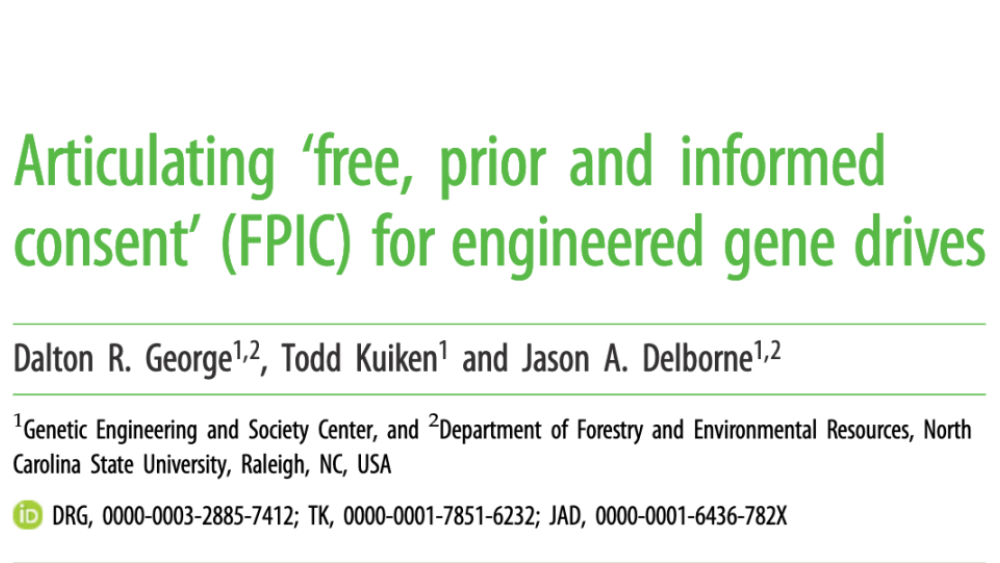
Articulating ‘free, prior and informed consent’ (FPIC) for engineered gene drives
Recent statements by United Nations bodies point to free, prior and informed consent (FPIC) as a potential requirement in the development of engineered gene drive applications. As a concept developed in the context of protecting Indigenous rights to self-determination in land development scenarios…
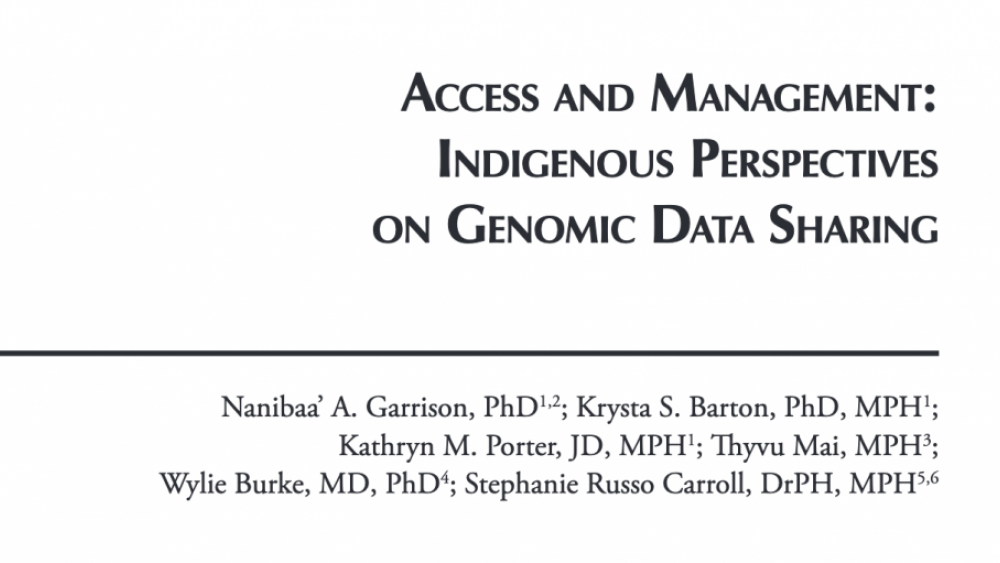
Access and Management: Indigenous Perspectives on Genomic Data Sharing
As genomic researchers are encouraged to engage in broad genomic data sharing, American Indian/Alaska Native/Native Hawaiian (AI/AN/NH) leaders have raised questions about ownership of data and biospecimens and concerns over emerging challenges and potential threats to tribal sovereignty. Using a…

Tribally-Driven Participatory Research: State of the practice and potential strategies for the future
This article discusses current practice of research with and by American Indian tribal governments in the United States. It begins with a brief overview of Community-Based Participatory Research and compares and contrasts its principles and methods with what this paper terms Tribally-Driven…

Honoring Nations: Sarah Hicks: NCAI and the Partnership for Tribal Governance
Former NCAI Policy Research Center Director Sarah Hicks discusses the growth of the National Congress of American Indians (NCAI) and specifically its recent initiatives to support the nation-building and advocacy efforts of Native nations.
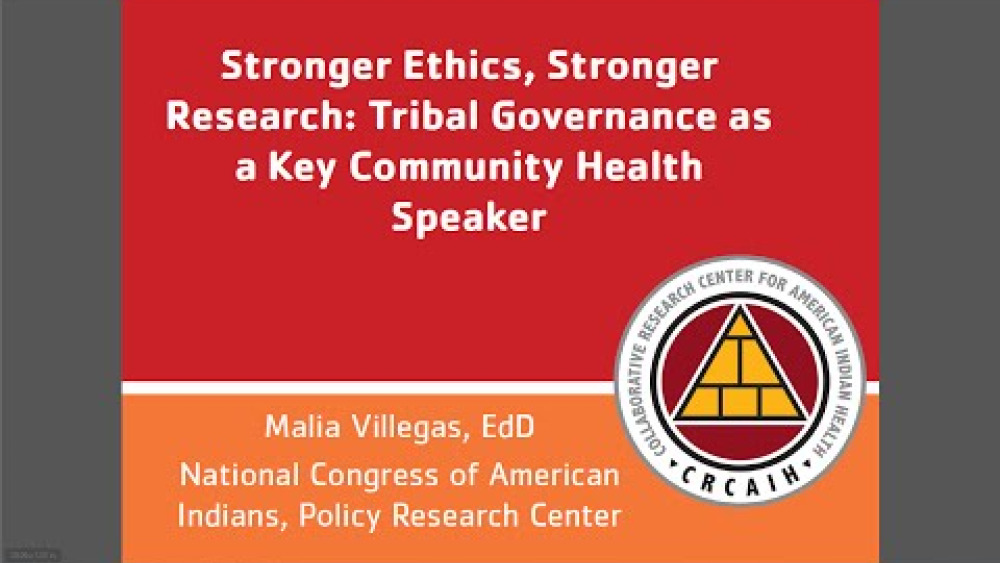
Stronger Ethics, Stronger Research: Tribal Governance as a Key Community Health Speaker
2015 CRCAIH Summit Keynote Address by Dr. Malia Villegas, National Congress of American Indians, Policy Research Center.
Pagination
- First page
- …
- 1
- 2
- …
